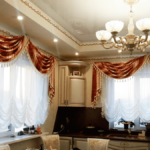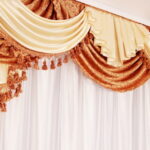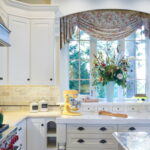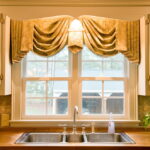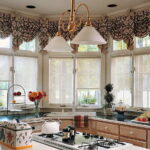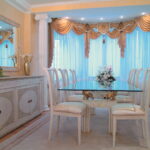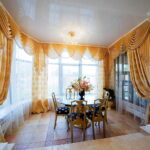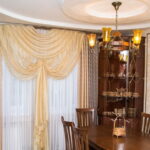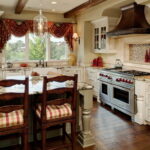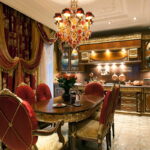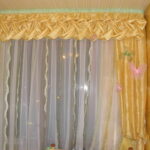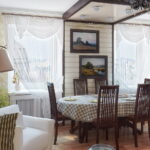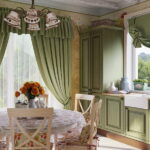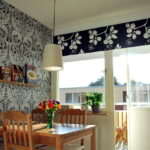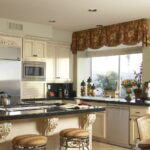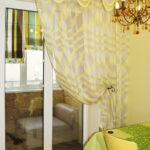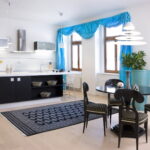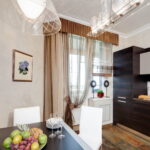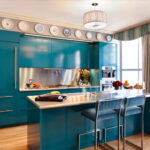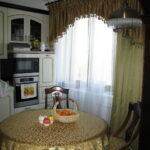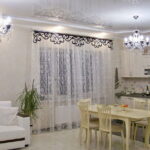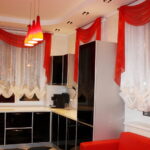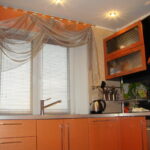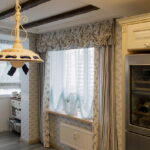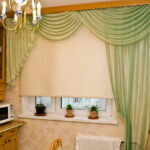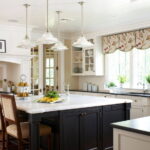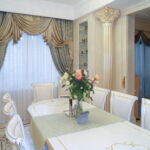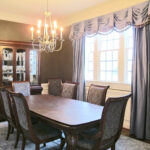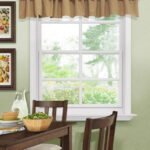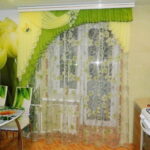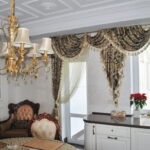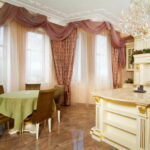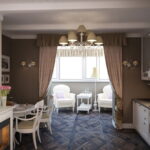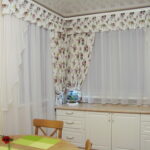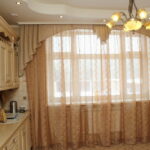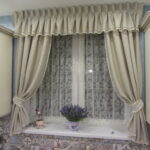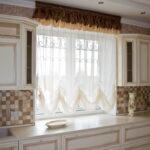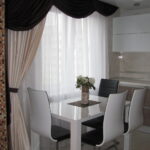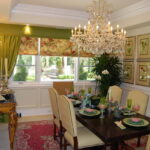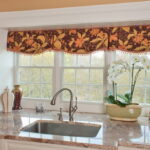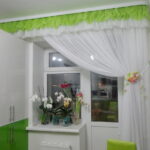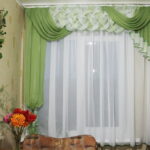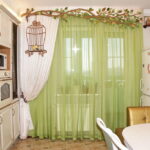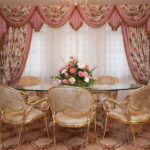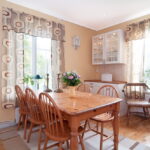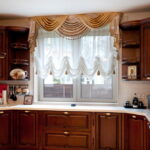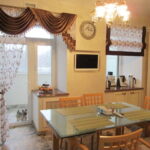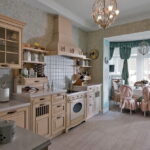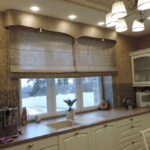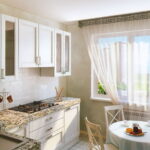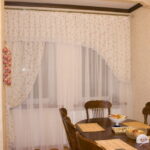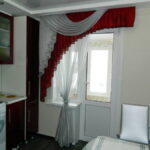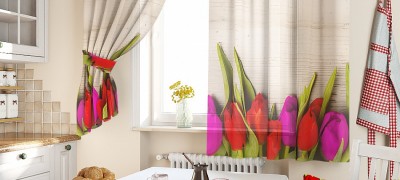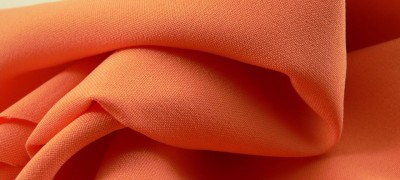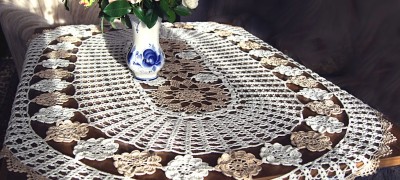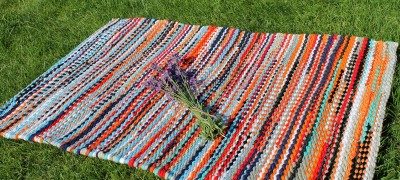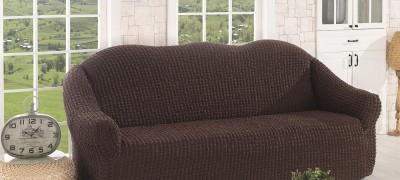Making lambrequins for the kitchen
The interior of any room consists of little things that form the integrity of the image. An important role in complementing it is played by a lambrequin in the kitchen, the choice of which must be approached correctly. First, the curtains in such a room must be resistant to moisture and fire. Secondly, dust and dirt, let alone greasy fumes, should not accumulate on the surface of the product.
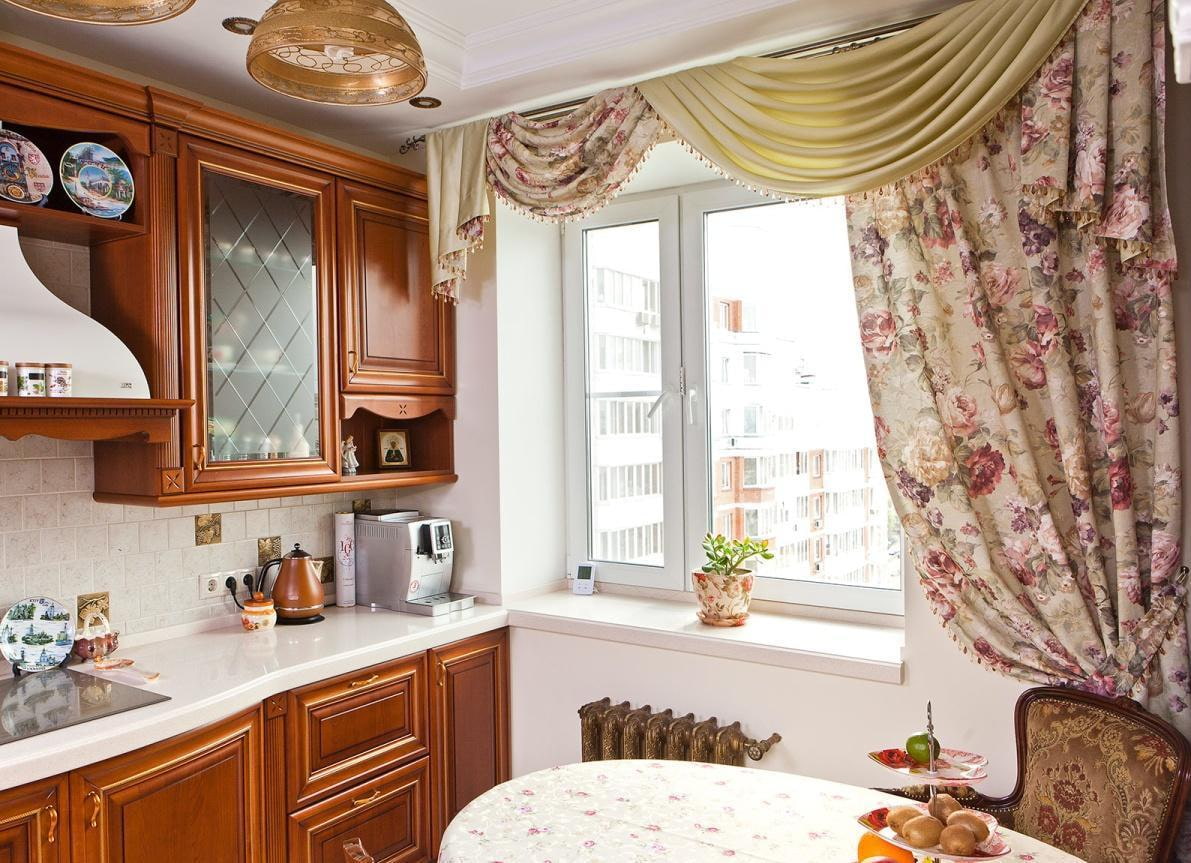
However, it is quite difficult to choose a high-quality and affordable designer lambrequin. Either the material will not fit, or the color and style of the product will not be combined with the kitchen set. Therefore, the actual question is how to sew a lambrequin for the kitchen on your own according to a pattern.
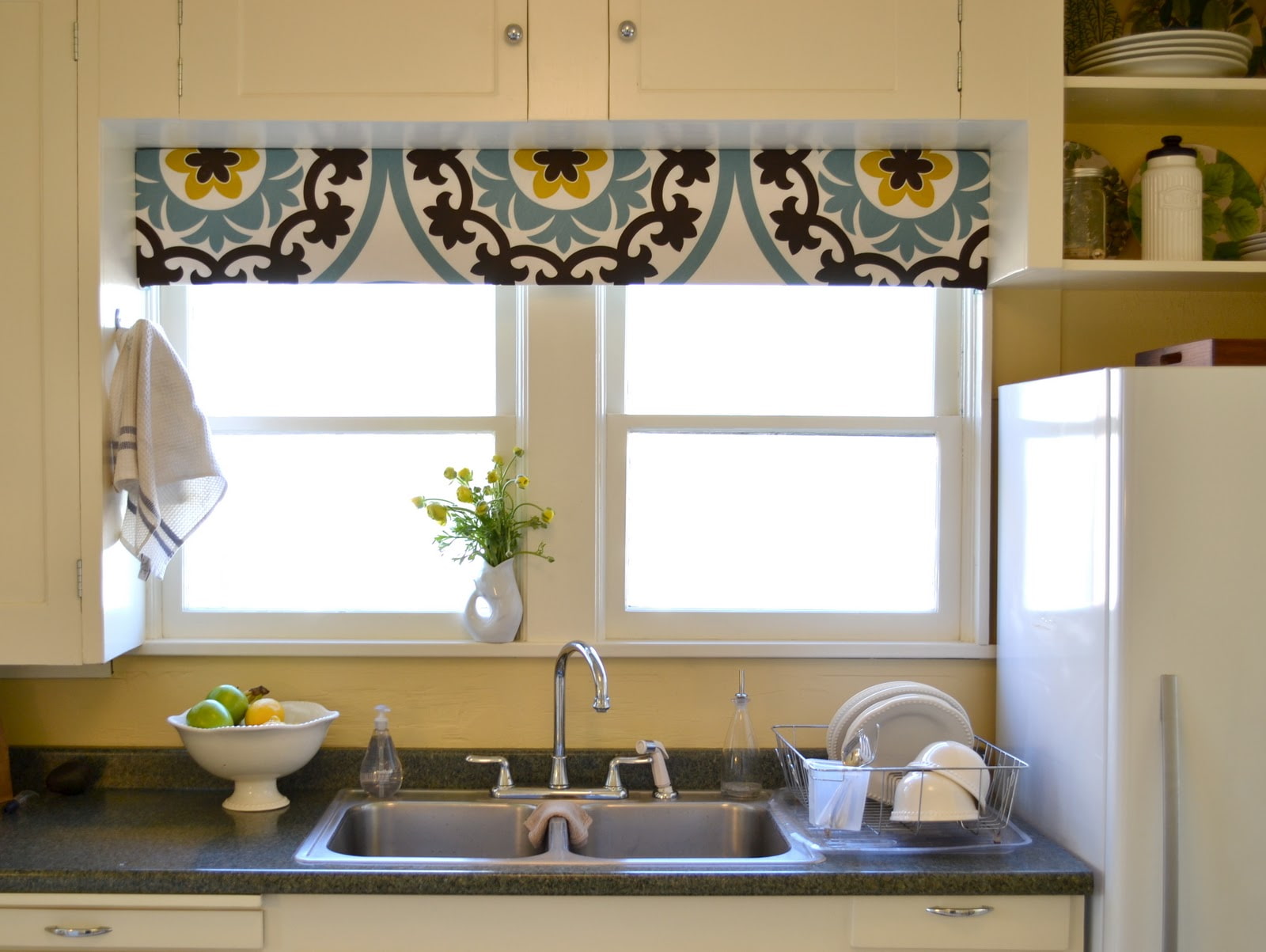
- Varieties of lambrequins for the kitchen
- How to sew a lambrequin in the kitchen with your own hands
- What material to choose for a kitchen lambrequin
- Patterns
- The process of making a lambrequin for the kitchen
- Video: a simple do-it-yourself lambrequin model
- 50 design options for lambrequins for the kitchen
Varieties of lambrequins for the kitchen
There are several types of kitchen lambrequins:
- Soft type;
- Hard type;
- Combined.
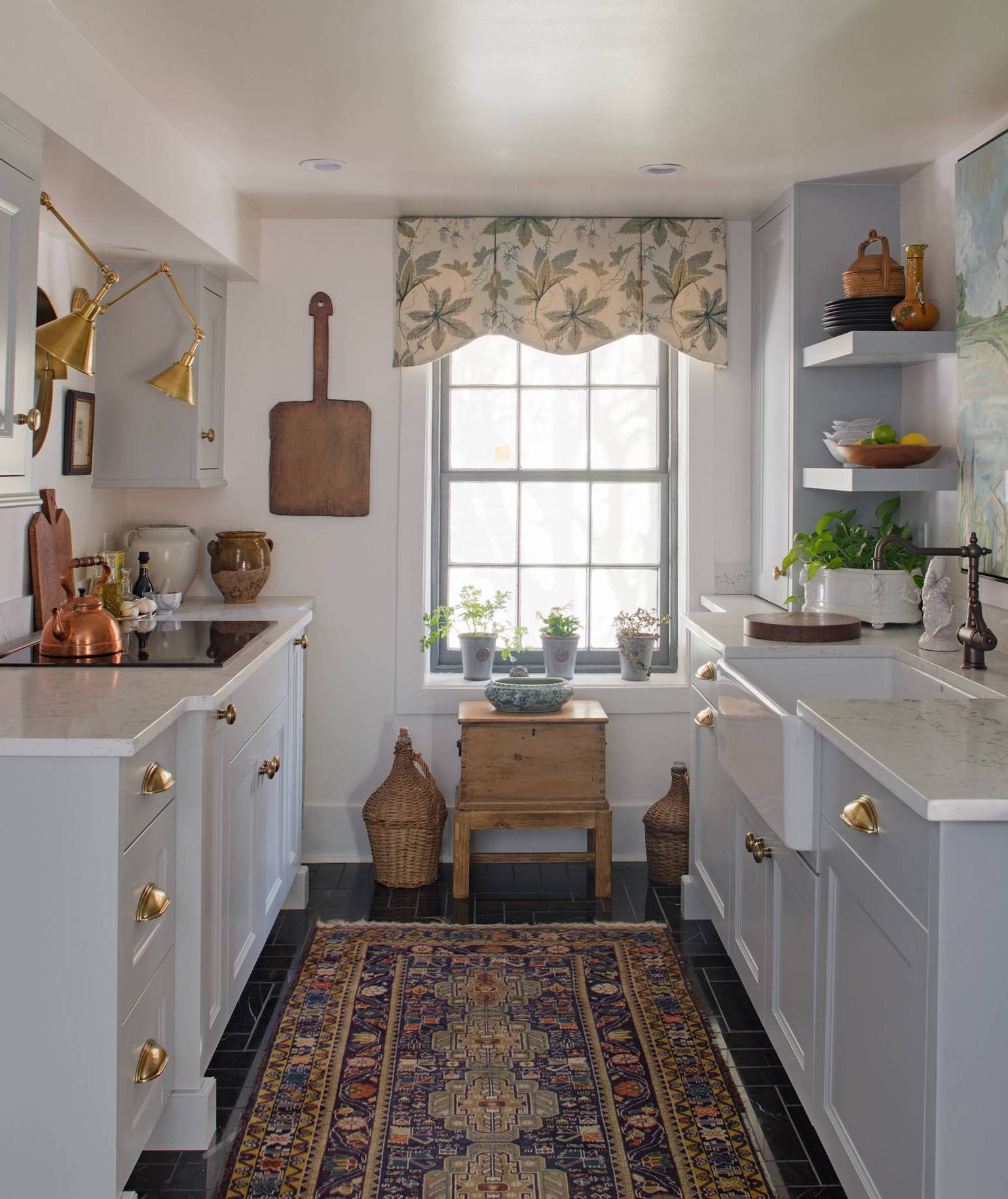
The most popular type is soft. It is intended for room decoration, as it is a drapery product. The more waves, fringes, laces and ribbons on such a product, the more beautiful the window looks.
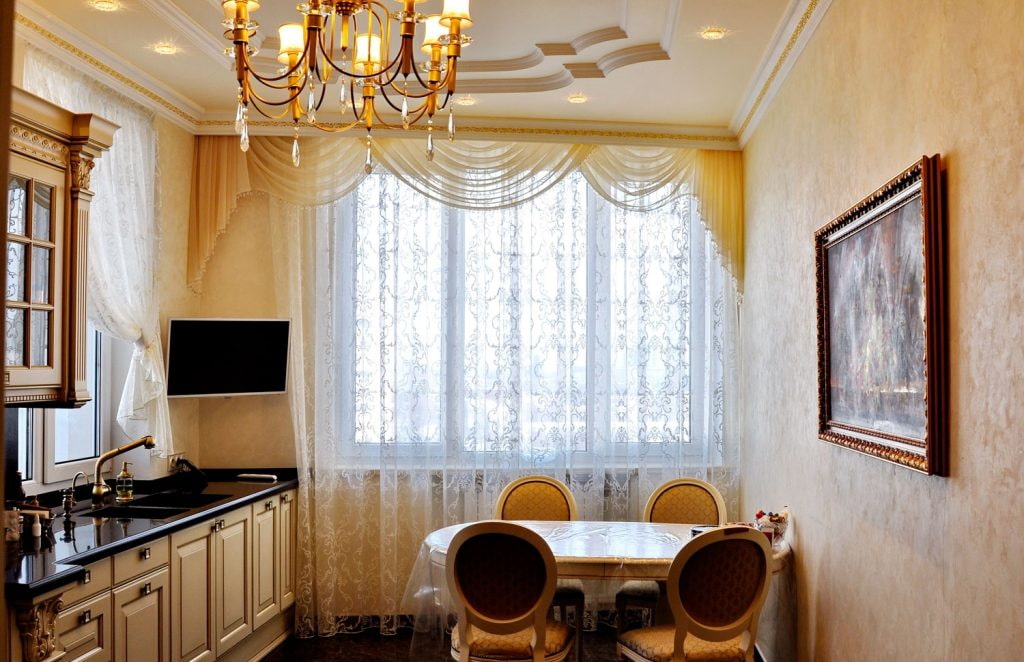
The hard type differs from the soft one in that it is created in order to cover the upper wall, hide the unevenness of the wall or ceiling, visually enlarge or reduce the window. In fact, these are products for practical purposes. It is such a lambrequin for the kitchen with your own hands that requires patterns and strict observance of proportions when sewing curtains.
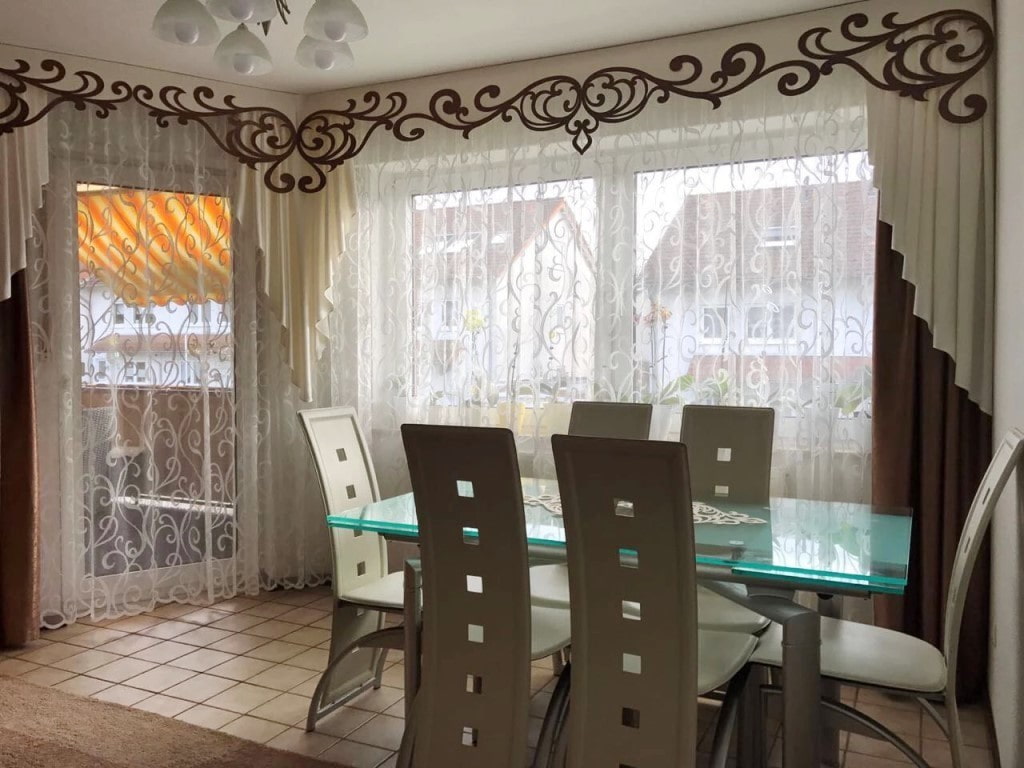
Combined kitchen lambrequin is suitable for rooms with large windows. It combines the rigidity of the base and the softness of the drapery. It allows you to create a beautiful image, emphasize the subtlety of style or hide the imperfections of a room by moving attention from the element to the window. Combined types are characterized by the use of such decorative elements as de jabot, tie, cascade, swag, bow and others.
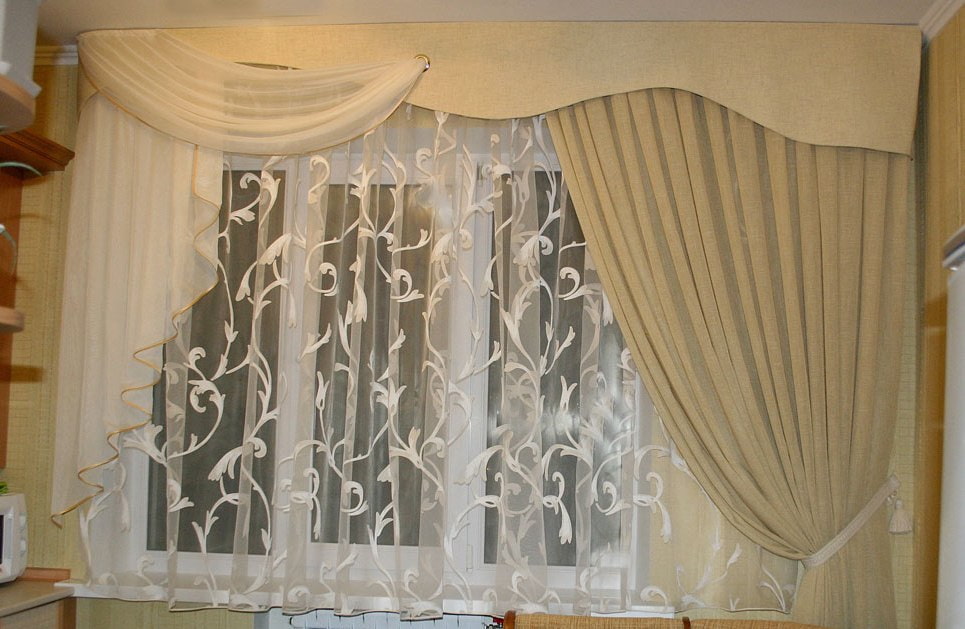
How to sew a lambrequin in the kitchen with your own hands
If you decide to sew a lambrequin with your own hands, then the pattern is the first stage, the purchase of material is the second, the cutting is the third, fitting, adjustment and sewing is the fourth.
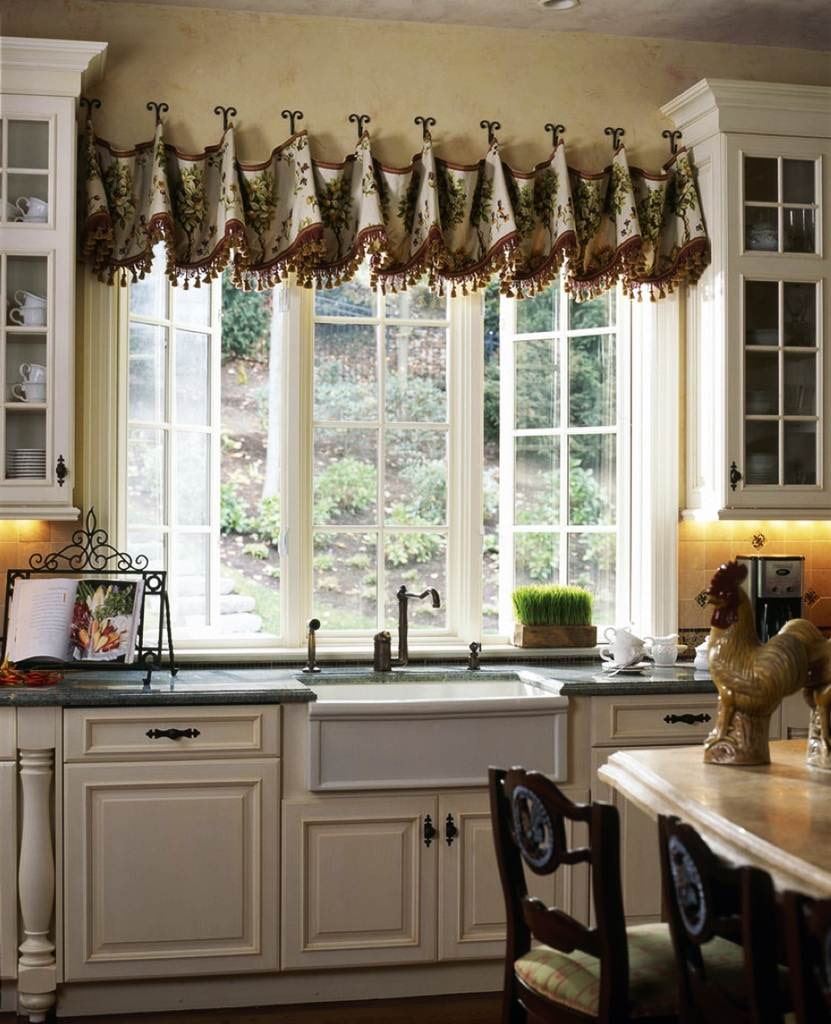
To correctly draw a pattern, you need to take measurements of the window. Using a construction tape, we measure the length of the cornice, the height from the bottom of the cornice to the floor or the place where the floor of the lambrequin should end. Next, we determine the height from the eaves to the beginning of the window. This is necessary in order to determine the height of the swag, side tie or decorative swing.
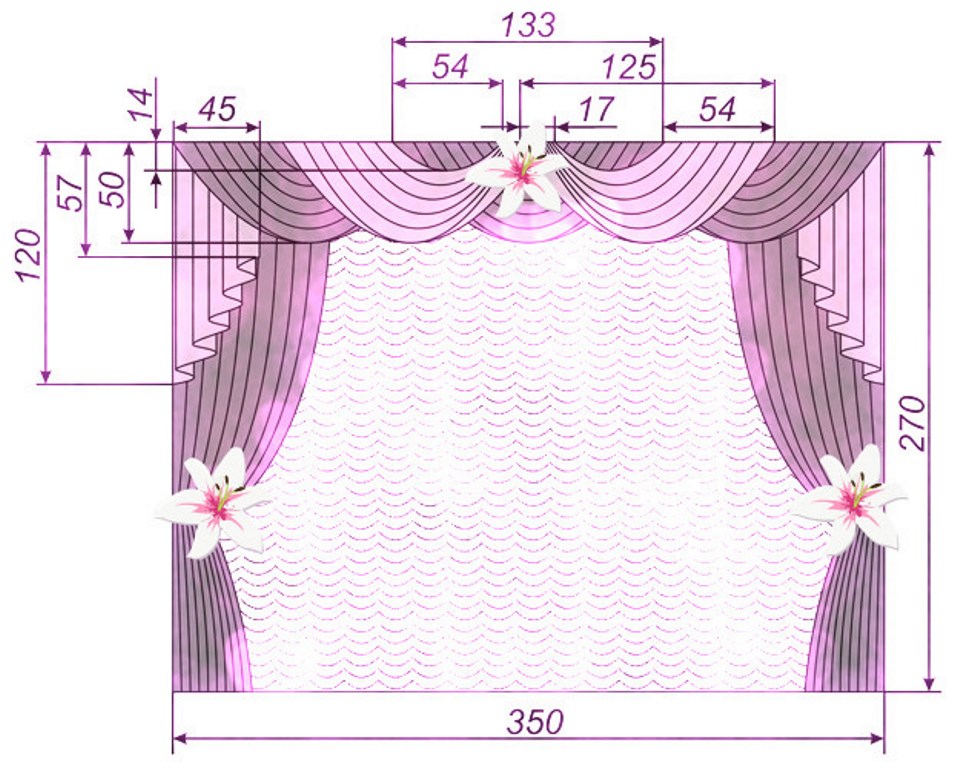
To determine the length of the tie, we measure the height from the eaves to the place where the bottom of the decorating element should end. Determine the width of the tie as well. We make an allowance for all elements.It is needed to process the material and form folds.
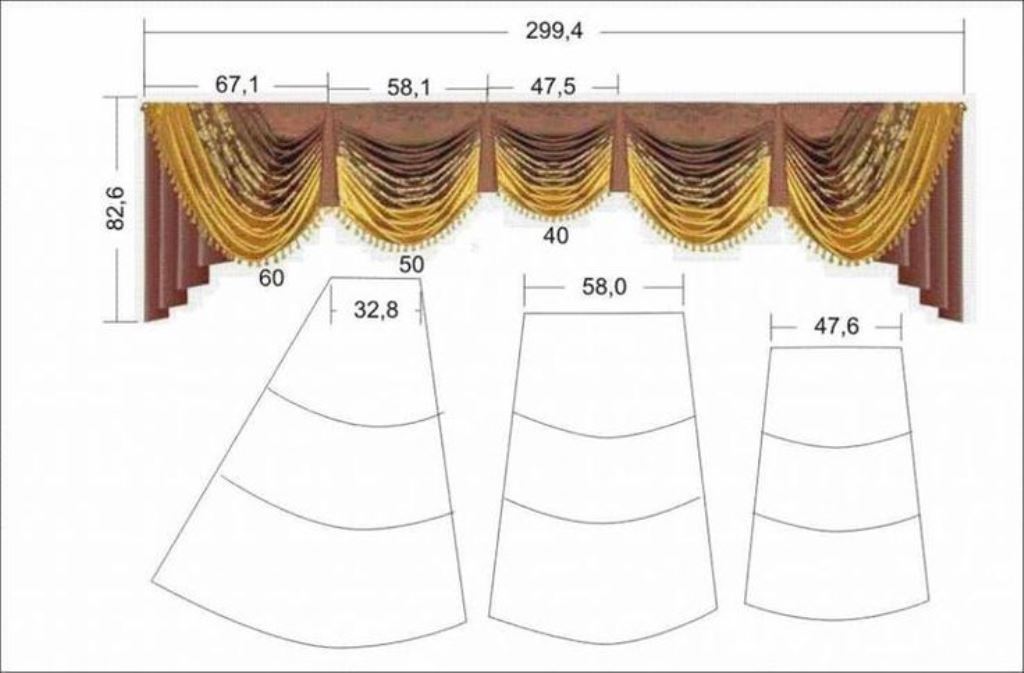
If you are going to use a swag, then you need to measure the gap between the folds, the length of the shoulder, the length of the swag itself and the length of the lower bend.
For drawing patterns, you can use both paper canvases and old unnecessary wallpaper. We draw the pattern already with allowances.
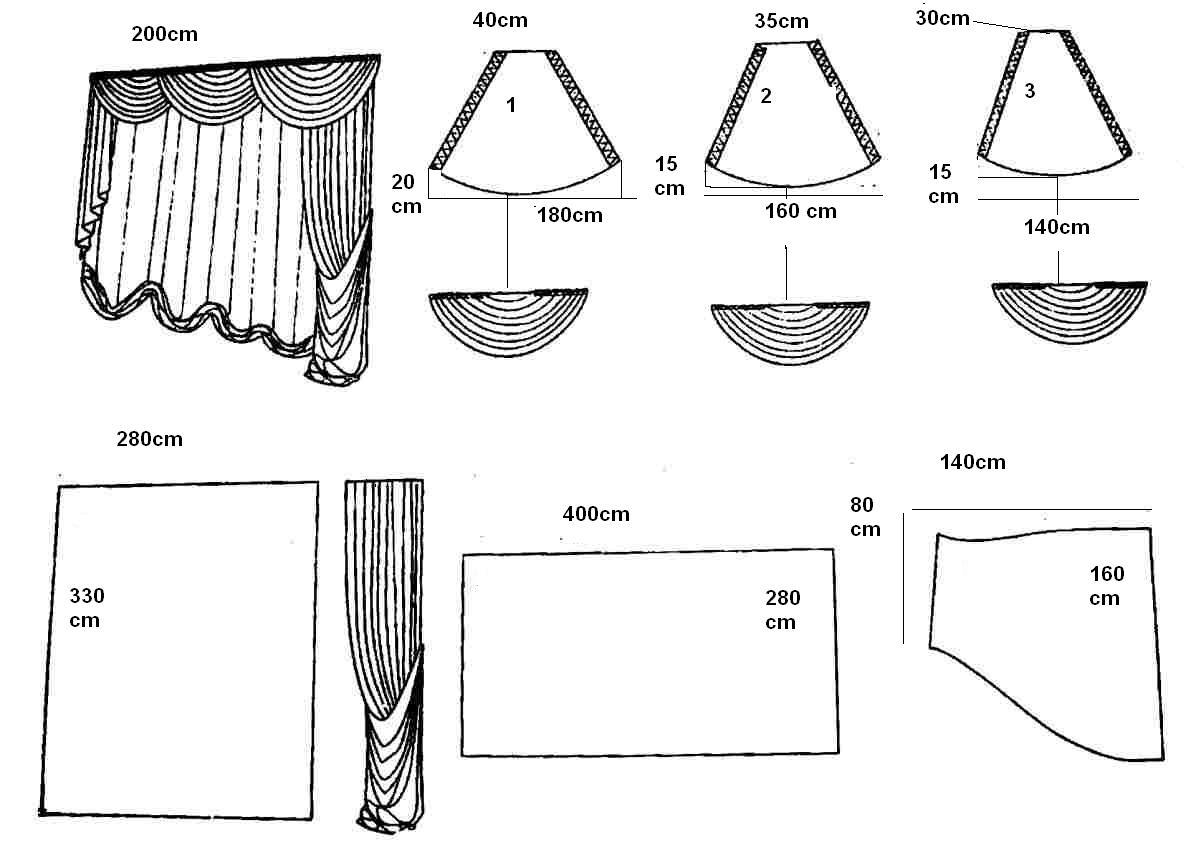
IMPORTANT! We do not recommend working without a paper pattern for beginners.
After creating a pattern, you need to choose the right material and purchase related materials for sewing: front fabric, lining, threads, frill for lining (non-woven, bandeau or dublerin), decorative cord, tape for fixing the lambrequin itself, pins. We also recommend purchasing a wooden plank on which the workpiece will be attached and the actions will be corrected.
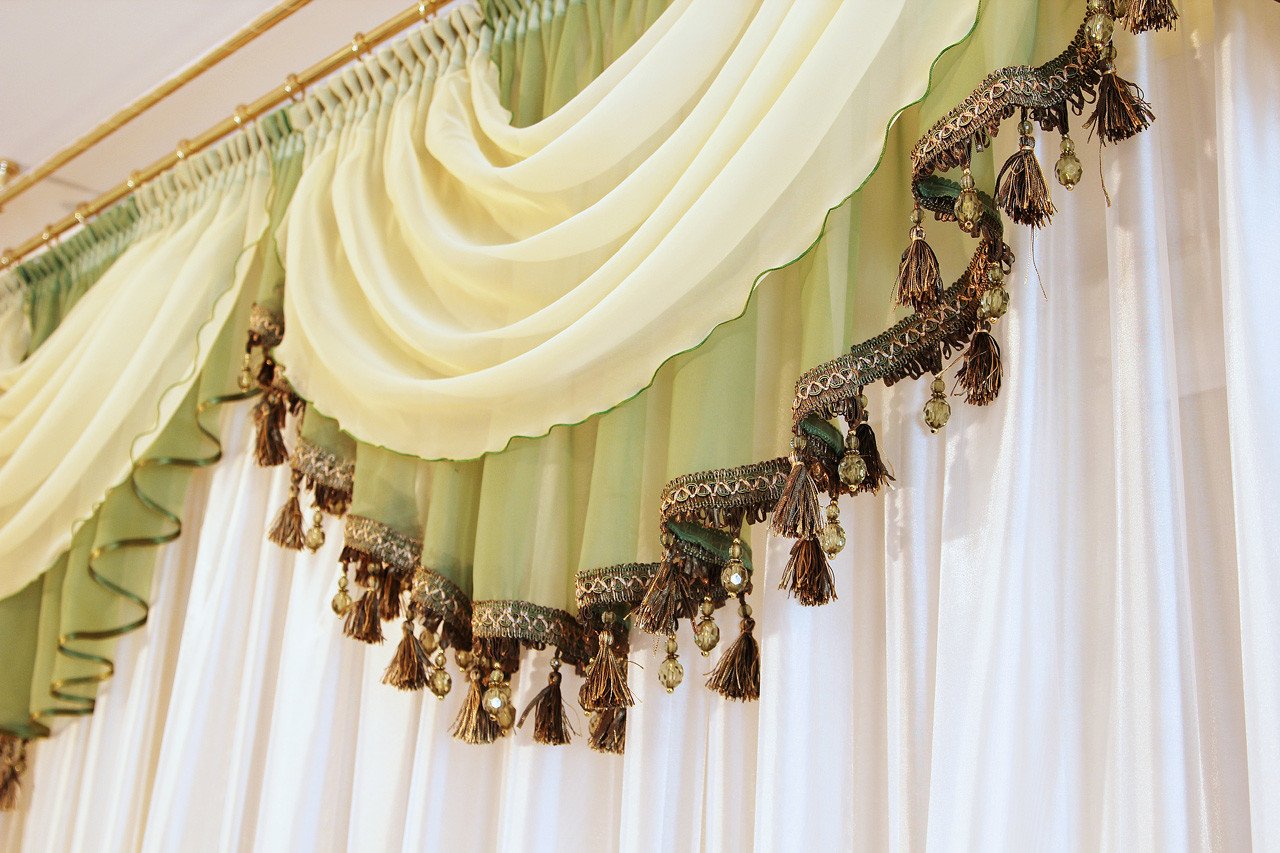
IMPORTANT! The lining is needed to give the product volume, texture and softness. Without lining, provided a lightweight fabric is used, the curtain will not look attractive. The lining material can be cheaper than face cloth as it will hide.
After measuring all the elements, correctly outlining them (we recommend using laundry soap for sketching, and not chalk and pencil, since the soap is erased and does not leave traces), you need to connect all the elements with pins and sew them separately.
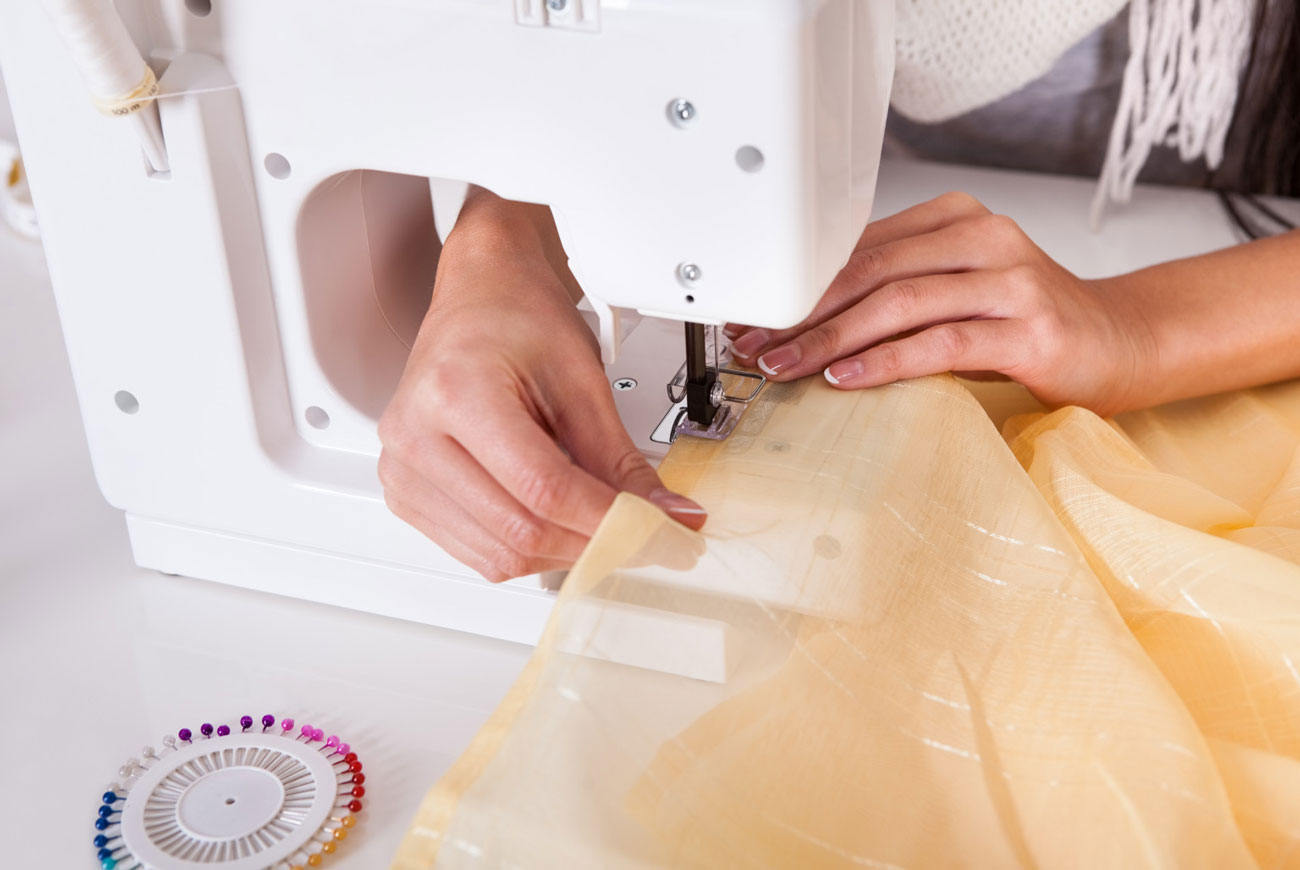
What material to choose for a kitchen lambrequin
Many people are mistaken when the material for the lambrequin is chosen by color. If red color predominates in the design of your kitchen, this does not mean that the fabric for the lambrequin should be exactly the same color. The aesthetic appearance of the product depends on the quality of the material, and not only on its color.
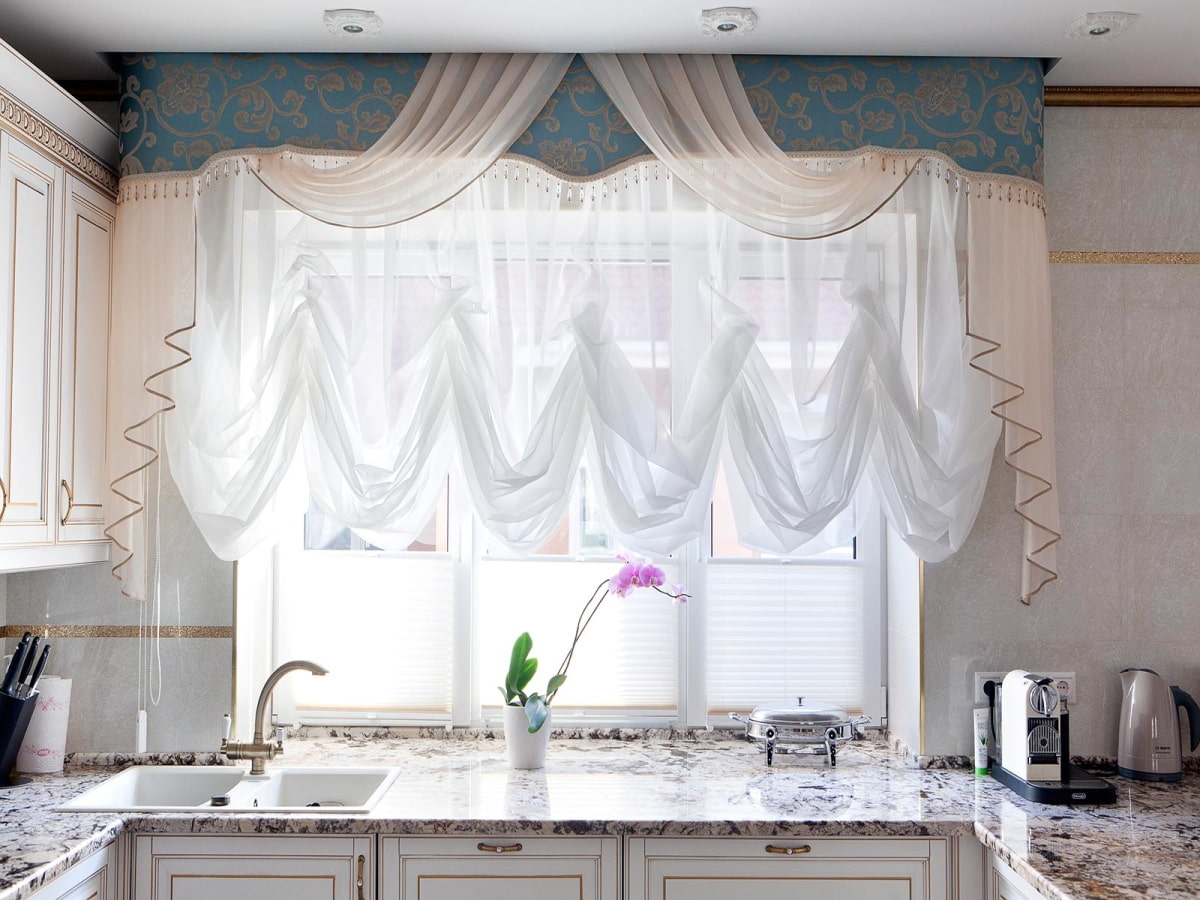
The first rule when choosing a material for a kitchen curtain is resistance to moisture, dust, greasy fumes and high temperatures.
Usually a lambrequin for the kitchen is sewn from fabrics that are easy to wash and clean. Less often, if the kitchen is large and the windows are not near the stove, then heavier materials are used for sewing.
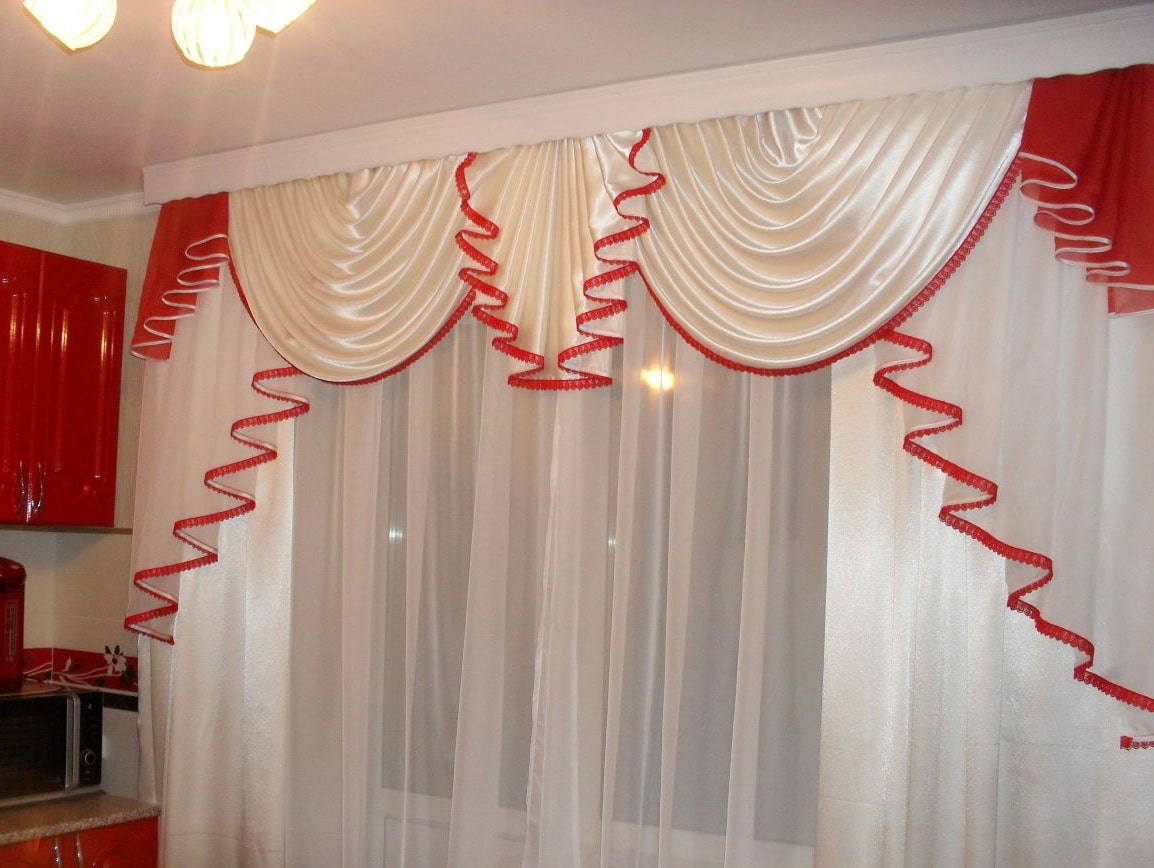
Among the materials that are most suitable for sewing a lambrequin, it is worth highlighting:
- Tulle. Material used for curtains. Easy to sew, washable, but does not hold its shape well. Purchase and use of additional padding will be required.
- Chiffon. Translucent fabric of bright colors, which is comfortable to work with, allows you to create waves, swagi of various sizes. Washes well, keeping its natural look. Combines well with decorative elements.
- Organza. A fabric that resembles a cross between tulle and chiffon. It is tough, but has a high degree of transparency. Forms persistent waves during assembly. Suitable for multiple washing. Needs ironing.
- Rip fabric. Thick fabric that is designed for lining. It is used both in combination with light and heavy materials.
- Batiste is a thin fabric that is used as an additional material when creating ties, swags and de jabots.
IMPORTANT! New in 2020 - the use of leather to create curly lambrequins for the kitchen in the style of an electrician, high-tech, loft.
It should be noted that other materials are also suitable for sewing lambrequins in the kitchen. The main thing to remember is that in no case should the fabric directly touch the heating surface, and it is even better that the kitchen set is not located very close to the window.
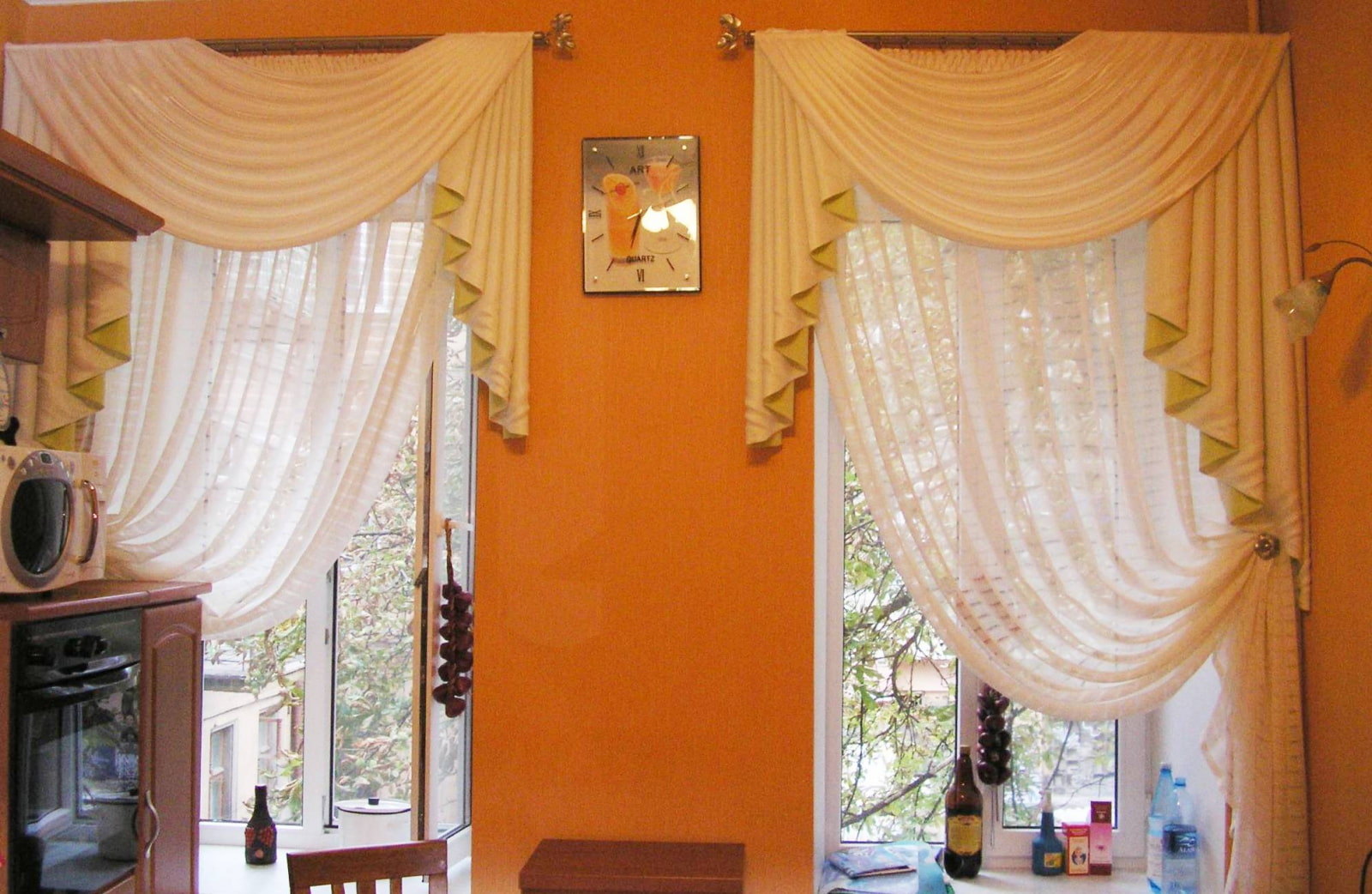
Patterns
Any pattern can be created manually or in the NanoCad program. In it, you can not only create a pattern, but also the design of the future product. All you need to do is:
- Download a compatible version of the program and install it on your PC.
- Indicate the main dimensions of the pattern.
- Send a pattern for printing or make a layout according to a ready-made sample by hand.
- Cut the material according to the pattern, prepare it for stitching.
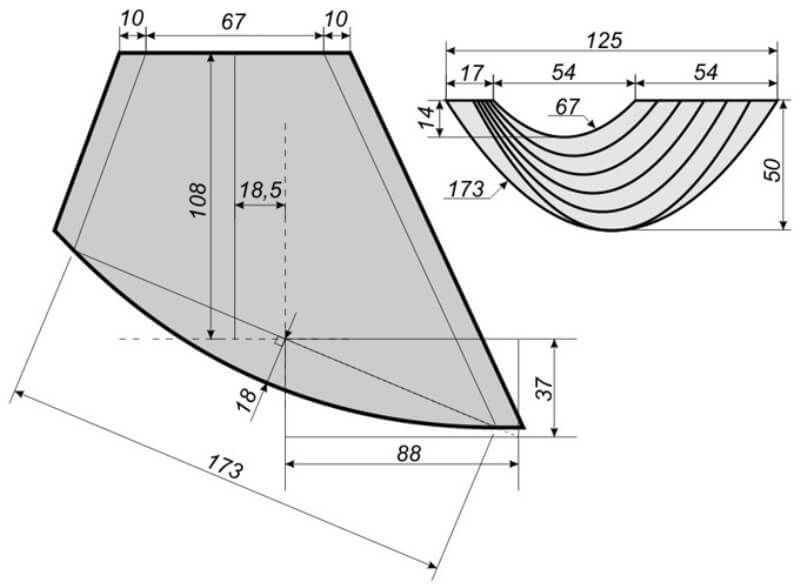
All these actions can be performed without using the program.
The process of making a lambrequin for the kitchen
In order for the lambrequin to be sewn correctly, it is worth cutting out the material according to the pattern and fastening it with pins. Next, we perform the following actions:
- We fix a bar at the level of the eaves, on which the workpiece will be attached.
- We sweep all the elements.
- We fix the elements of the future lambrequin on the bar in the following order: frill, ties, chill mold (wavy elements), swagi (wavy swing).
- Determine if folds and swings are formed correctly, adjust the height and width of the elements.
- We remove the workpiece. We completely sheathe the elements using the decorating material.
- We again hang the workpiece on the bar. Check if the curtain components are positioned correctly.
- We sew everything on one tape. The pelmet is ready.
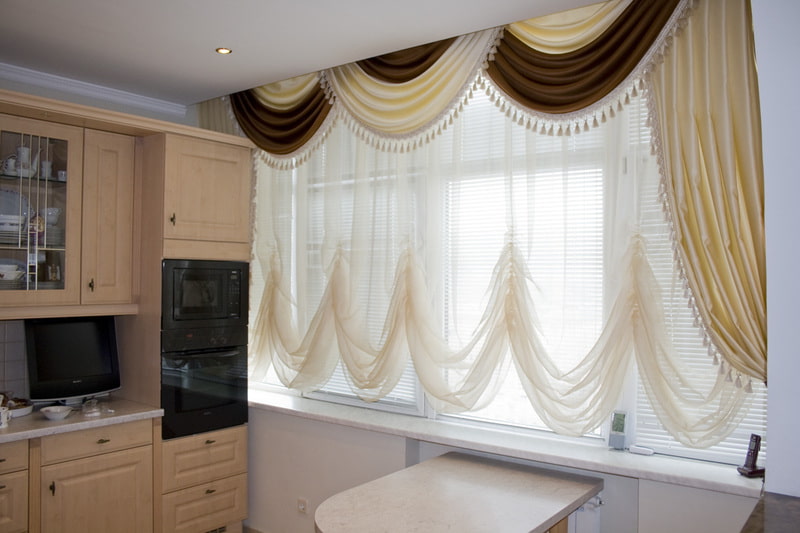
Before you hang the finished lambrequin, you should initially put the hooks on the tape in order to quickly place them in the grooves of the cornice.
Thus, if your kitchen has several windows or a small window opening that can brighten up an original lambrequin of your own design, then using the above recommendations, you can sew a suitable product.
Video: a simple do-it-yourself lambrequin model
